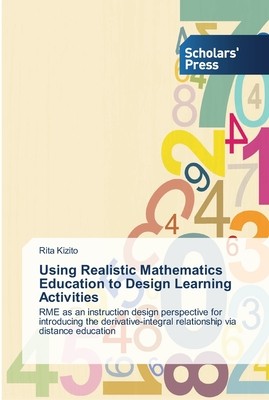
- We will send in 10–14 business days.
- Author: Rita Kizito
- Publisher: Scholars' Press
- ISBN-10: 3639513169
- ISBN-13: 9783639513165
- Format: 15.2 x 22.9 x 1.9 cm, softcover
- Language: English
- SAVE -10% with code: EXTRA
Using Realistic Mathematics Education to Design Learning Activities (e-book) (used book) | bookbook.eu
Reviews
Description
The rationale for this study emerged from a realization that conventional instructional design approaches for introducing Calculus concepts, based on the logical sequencing and structuring of the concepts, did not adequately attend to or address students' ways of thinking. The instructional design theory of Realistic Mathematics Education (RME) offered a promising approach for designing learning sequences based on actual investigations of the ways in which students think. This study's focus was on trialling the process of RME theory-based design using the Fundamental Theorem of Calculus as an example.Applying RME required developing a hypothetical learning trajectory (HLT) while attempting to adhere to methodological guidelines of design research. The series of design experiments have revealed knowledge about student reasoning four main areas of quantifying change, curve sketching, general mathematical reasoning and symbol use. From the study, it is clear that successful adoption of the RME is influenced by: careful selection of the concepts to be presented; a team of experts to research, test and develop the learning activities; opportunities for student interaction and resources.
EXTRA 10 % discount with code: EXTRA
The promotion ends in 20d.11:08:27
The discount code is valid when purchasing from 10 €. Discounts do not stack.
- Author: Rita Kizito
- Publisher: Scholars' Press
- ISBN-10: 3639513169
- ISBN-13: 9783639513165
- Format: 15.2 x 22.9 x 1.9 cm, softcover
- Language: English English
The rationale for this study emerged from a realization that conventional instructional design approaches for introducing Calculus concepts, based on the logical sequencing and structuring of the concepts, did not adequately attend to or address students' ways of thinking. The instructional design theory of Realistic Mathematics Education (RME) offered a promising approach for designing learning sequences based on actual investigations of the ways in which students think. This study's focus was on trialling the process of RME theory-based design using the Fundamental Theorem of Calculus as an example.Applying RME required developing a hypothetical learning trajectory (HLT) while attempting to adhere to methodological guidelines of design research. The series of design experiments have revealed knowledge about student reasoning four main areas of quantifying change, curve sketching, general mathematical reasoning and symbol use. From the study, it is clear that successful adoption of the RME is influenced by: careful selection of the concepts to be presented; a team of experts to research, test and develop the learning activities; opportunities for student interaction and resources.


Reviews